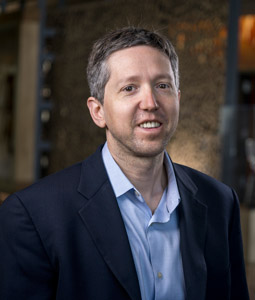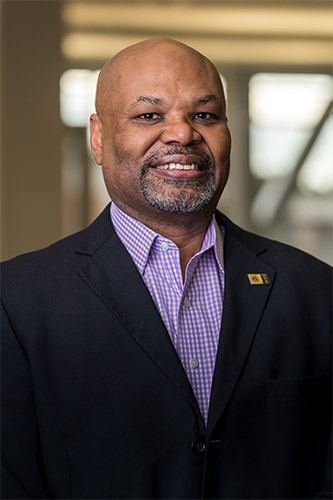Each year, the University of Utah recognizes the achievements of exceptional faculty members in teaching, research, mentorship and service. Below are the honorees for this year.
Sarah Shippobotham
Professor | Department of Theatre | College of Fine Arts
“What is perhaps more impressive about Professor Sarah Shippobotham than her seemingly tireless work with students is her commitment to improving and renewing her teaching skills. Over the years I have known her, she has taken a wide variety of courses to extend her understanding of specialized areas of performance and to keep abreast of key developments in the field. Most recently, she has pursued training in intimacy direction, an emerging and extremely important field in the performing arts. The #MeToo movement brought to light the pervasive culture of sexual abuse in the entertainment industry. Having been inspired by this movement, Professor Shippobotham has not only sought training in intimacy direction for herself, but has also led efforts to bring an internationally recognized intimacy director to the University of Utah to train other faculty in the department and then to offer training to theatre educators, professionals, and students from all over the state.”
Patricia Rohrer
Assistant Dean | Honors College
“Professor Rohrer is intentional in creating an environment in our classroom that both stimulates open discussion and open minds, where each contribution is simultaneously appreciated and challenged.”
“She has pushed me to push past my own biases while thinking and to get more out of readings.”
“She was extremely supportive of me and would often engage in deep conversations about the course material and her research interests outside of class.”
“Professor Rohrer teaches with such energy that sparks excitement whenever I stepped into the classroom. She is fully available for student and shows she truly cares for our success.”
Robert Durham
Science Teacher | East High School | Salt Lake City School District
“In 2012, Rob was hired to teach at East High School. At East, Rob has taught Biology, Chemistry, Astronomy, AP Environmental Science, and is the sponsor for the East High Environmental Club. He has also served in several non-teaching roles at East. Rob has led the Professional Learning Community (PLC) program and has also served as the School Improvement Committee (SIC) chair.”
“If you have had the privilege of having Rob as a colleague, you are aware of how deserving he is of this award. His genuine love of science, deep care and concern for his students, and commitment to his faculty peers is abundantly clear.”
Distinguished Teaching Awards
Professor | College of Architecture + Planning
“Professor Keith Bartholomew knows his subject matter inside and out plus more. He draws from his experiences as an attorney, musician, photographer, and seminary student. While both of his law courses have 50+ students, he teaches with the intensity usually found only in small seminars. Students come prepared, and everyone engages; students actively listen, make thoughtful comments, and ask critical questions. Professor Bartholomew centers his courses on the edges of the law, showing students how to push their intellectual boundaries through dialogue and writing. Over the semester, students gain confidence as they learn to feel comfortable sitting at the intersections of different disciplines, particularly law and the humanities and planning and real estate. In one course, I watched him gently walk a skeptical real estate student from viewing land-use law as a nuisance to something that adds value to development using the Socratic method."
Professor | S.J. Quinney College of Law
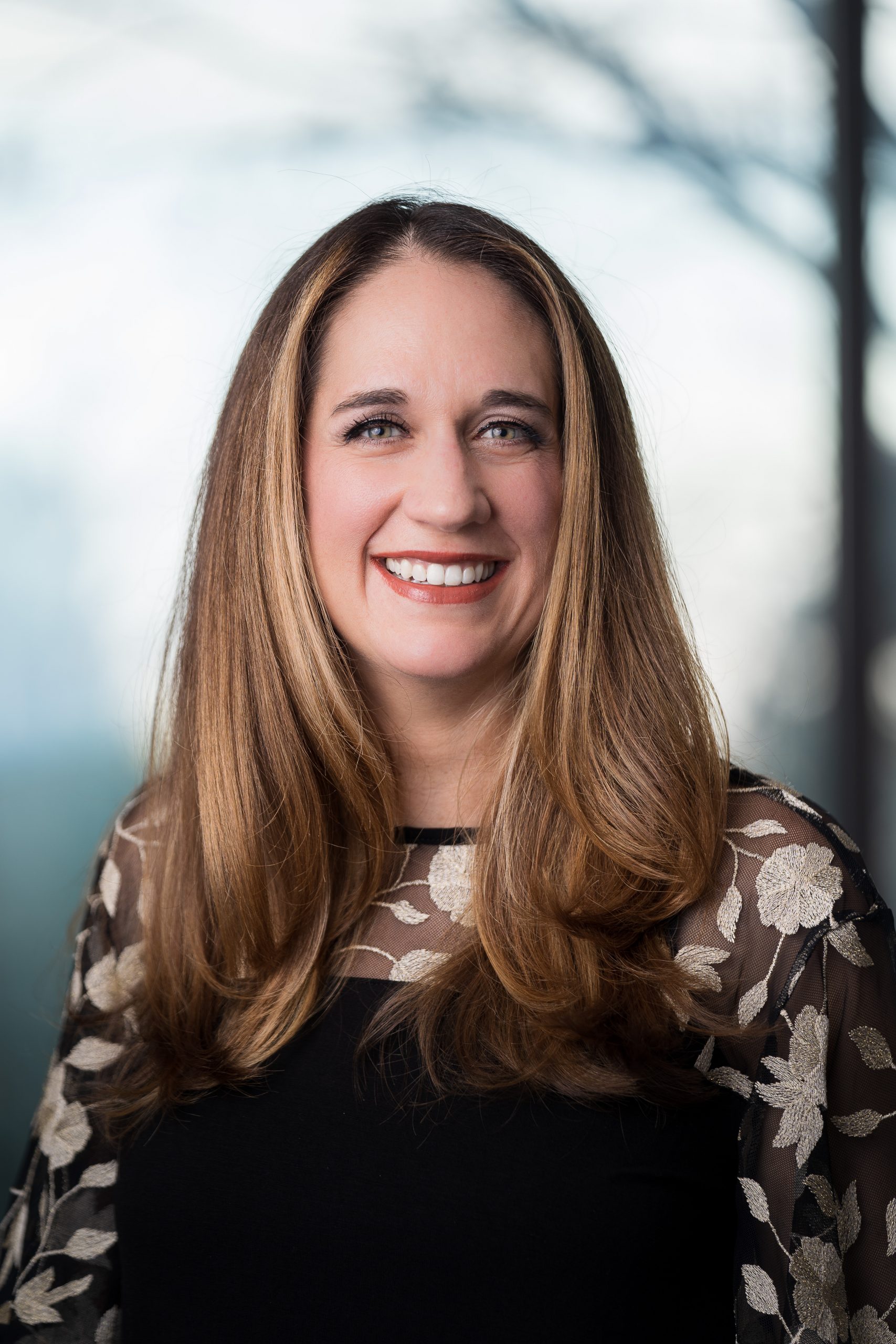
“Professor Teneille Brown is one of the College of Law’s most outstanding professors, and we are lucky to have her on our faculty. I am constantly receiving glowing feedback from students on Professor Brown’s teaching methods and philosophy. In addition to being applauded for her mastery of the materials, clear communication of expectations and content, and exceptional preparedness, she is frequently innovating new ways of connecting with her students. This is essential during this pandemic. She reports that she spent countless hours over the summer listening to podcasts and attending bootcamps to improve her online teaching skills, and to fully realize a commitment to the Pedagogies of Care. If you are not familiar with this philosophy, it recognizes the humanity of students and the professor’s role as a compassionate teacher and role model. Research demonstrates that unlike the intimidating and exclusionary law school classrooms of the last century, all students learn better when they feel respected and when they know their professors have a deep commitment to their success. Professor Brown embodies this philosophy both inside and outside of the classroom, and her commitment to student learning shows in every aspect of her course design and implementation. She cares deeply about her students.”
Professor (Lecturer) | S.J. Quinney College of Law Professor (Lecturer) | Honors College

“Within the juris doctor (J.D.) program, Professor Dryer developed the Pretrial Practice class, which has been a mainstay of the JD skills-based curriculum for years. This class requires exceptional teaching skills, as Professor Dryer must find engaging ways to teach students skills while not being involved in a real-life trial. In addition, he also developed two new skills courses titled Technology and Modern Litigation and Taking and Defending Depositions. In all three courses he uses innovative teaching methods involving course blogs, real-time polling software, group exercises, role playing, and numerous formative assessment tools. The dominant teaching pedagogy of legal education, the Socratic Method, has remained largely the same since first utilized in the 19th century. Professor Dryer is to be applauded for his willingness to think ‘outside the box’ of legal education to best teach his students.”
Professor (Lecturer) | Department of Chemistry | College of Science
“What elevates Professor Holly Sebahar’s nomination from merely outstanding to truly exceptional is her work with undergraduate peer-led teaching: she supervises and mentors between 20 and 40 learning assistants each semester, and these students are deployed across many sections of organic chemistry. Her work has a powerful multiplier effect on hundreds of students each semester.”
Associate Librarian | J. Willard Marriott Library

“In support of and long before “One U,” Dr. Donna Ziegenfuss worked with nearly every college and school at the University of Utah. She is well known among her University colleagues for implementing effective and innovative teaching methods which demonstrate exceptional abilities to motivate student learning. The Quality Course Framework and backward design teaching methodologies used by Teaching and Learning Technologies (TLT) and the Center for Teaching and Learning Excellence (CTLE) are based on core principles developed by Dr. Ziegenfuss. These principles were developed using research from others and through her own research projects to test student learning.”
Distinguished Professors
Professor | Department of Internal Medicine | School of Medicine
“Over her 35 years on the faculty of the University of Utah School of Medicine, Dr. Saundra Buys has influenced innumerable lives through her largely unrecognized and key role as a model of excellence for women in medicine and allied health care professions. As I work closely with her in our breast cancer clinic, I have recognized the enormous time and personal effort she has put in as a mentor, an example, a steadying influence, and a coach for a continuous but changing stream of students of all stripes who come to learn at the feet of Dr. Buys. Her skills as a physician, both in terms of knowledge and caring, are unparalleled and recognized by all. in a way that cannot be quantified in a curriculum vitae. She has influenced and mentored the growth and careers of students over generations. Those who know her know that she is a force for helping others, no matter how large or how small their goals.”
Professor | School of Computing | College of Engineering

Professor Elaine Cohen’s research has led to a “steady stream of fundamental theoretical and computational advances in the area of mathematical splines and their applications.” Cohen became the first tenured female professor in the College of Engineering in 1985.
“Dr. Cohen has maintained a long-term interest in increasing the participation of groups underrepresented in computer science, a field where, in 2020 only 21% of the computer science undergraduate degrees in North America went to women. At the University of Utah, which lags the nation in the diversity of its computer science student population, only 13% of the computing undergraduate majors identify as women. To address this gap, Cohen’s voluntary outreach efforts include teaching a local workshop on computing for Salt Lake City elementary school teachers; teaching geometry, problem-solving and programming using LOGO in Salt Lake City public schools; serving on the Utah Science Committee on Computer Literacy; serving as a Computer Research Association (CRA) mentor; and being an invited speaker and panelist on several local and professional meetings on women in leadership roles."
Professor | College of Social Work

“Dr. Garland is arguably the world’s leading expert on the use of mind-body therapies to address opioid misuse and addiction among people with chronic pain. In 2020, Dr. Garland completed the largest randomized controlled trial to date and found that this innovative treatment reduced opioid misuse by 40% nine months after the completion of the treatment—demonstrating the efficacy of the intervention. Few if any other interventions have shown such clinically significant decreases in opioid misuse among people with chronic pain. To meet this void, Dr. Garland has developed an effective treatment for two of the most prevalent and pernicious public health crises of the modern age. In view of these contributions, Dr. Garland’s impact on the field has been highly significant."
Professor | Department of Physics & Astronomy | College of Science
“Professor David Kieda has had an absolutely outstanding career in research, teaching, and service at the University of Utah. He is truly a pioneer in developing significant new astrophysical techniques that are having a significant impact on our ability to understand the universe."
“Professor Kieda’s research, teaching, and service accomplishments are characterized by a common theme, specifically the development of radical new approaches to current problems in research, teaching, and administrative policies that break established paradigms, laying the foundation for breakthrough discoveries, and exploration of new realms of human knowledge and understanding that were previously thought to be inaccessible."
“As Dean of the Graduate School, Professor Kieda has taken a leading role at the University of Utah in the support and improvement of graduate education and has worked with the directors of Graduate Studies across campus to develop and implement ‘best practices.’ He has expanded the number of National Science Foundation (NSF) and Fulbright awards to the university bringing in more than $1 million a year in student support.”
Professor | Department of Ophthalmology & Visual Sciences | School of Medicine
“In 2019, Dr. Randall Olson reached the significant milestone of 40 years of service at the University of Utah. He joined the School of Medicine in 1979 as a one-person Division of Ophthalmology and built a world-class eye center at the University of Utah."
“Dr. Olson hired talented researchers and clinicians who had their own vision and gave them the space and support they needed to excel, acting as, in his words, ‘cheerleader-in-chief.’ Working with members of the community and philanthropists, he built the Moran Eye Center without state or federal support. Today, Moran is indeed a world-class institute with more than 60 faculty members, 15 research labs, clinicians practicing nearly all ophthalmic sub-specialties, more than 140,000 patient visits each year, and a highly competitive and nationally recognized residency program. Dr. Olson mentored students, residents and faculty to build this program.”
Professor | Department of Medicinal Chemistry | College of Pharmacy
“What is most striking about Dr. Eric Schmidt’s approach to science is that he is clearly a leading thinker of his generation. He has the innate ability to make observations and quickly recognize their application to unrelated ideas or completely new innovations. This uncanny ability has allowed him to be out in front, pioneering new research directions.”
“He wrote the book, as they say, back in 2005 with his work showing that a natural product called patellamide was produced by a marine invertebrate-derived microbe through a coordination of genomic, metabolomic, and bioinformatic science. He and his students were ahead of their time and went on to help launch the modern field of marine genome mining. Since then, they have discovered new modes of microbial biosynthesis, bioengineered chemical leads for medicinal use, and invented new approaches to apply synthetic genes for the production of medicinal leads. Truly impressive in my eyes and worthy of the distinguished rank. I have also been impressed with his ability to train stellar students who have since gone on to lead successful labs of their own.”
Distinguished Research Awards
Professor | Department of Chemistry | College of Science

“Professor Vahe Bandarian’s research interests are in discovering new natural products and elucidating the molecular-level mechanisms of the challenging enzymatic transformations that produce them in the cell. Specifically, his lab has reconstituted the key steps in the biosynthesis of the modified transfer RNA base, queuosine, which is found in all kingdoms of life. Future directions in this area will include probing the biological role of this and other ubiquitous RNA modification. Additional new areas of research being initiated will focus on mechanistic studies of enzymes involved in complex radical-mediated transformations.”
Professor | S.J. Quinney College of Law
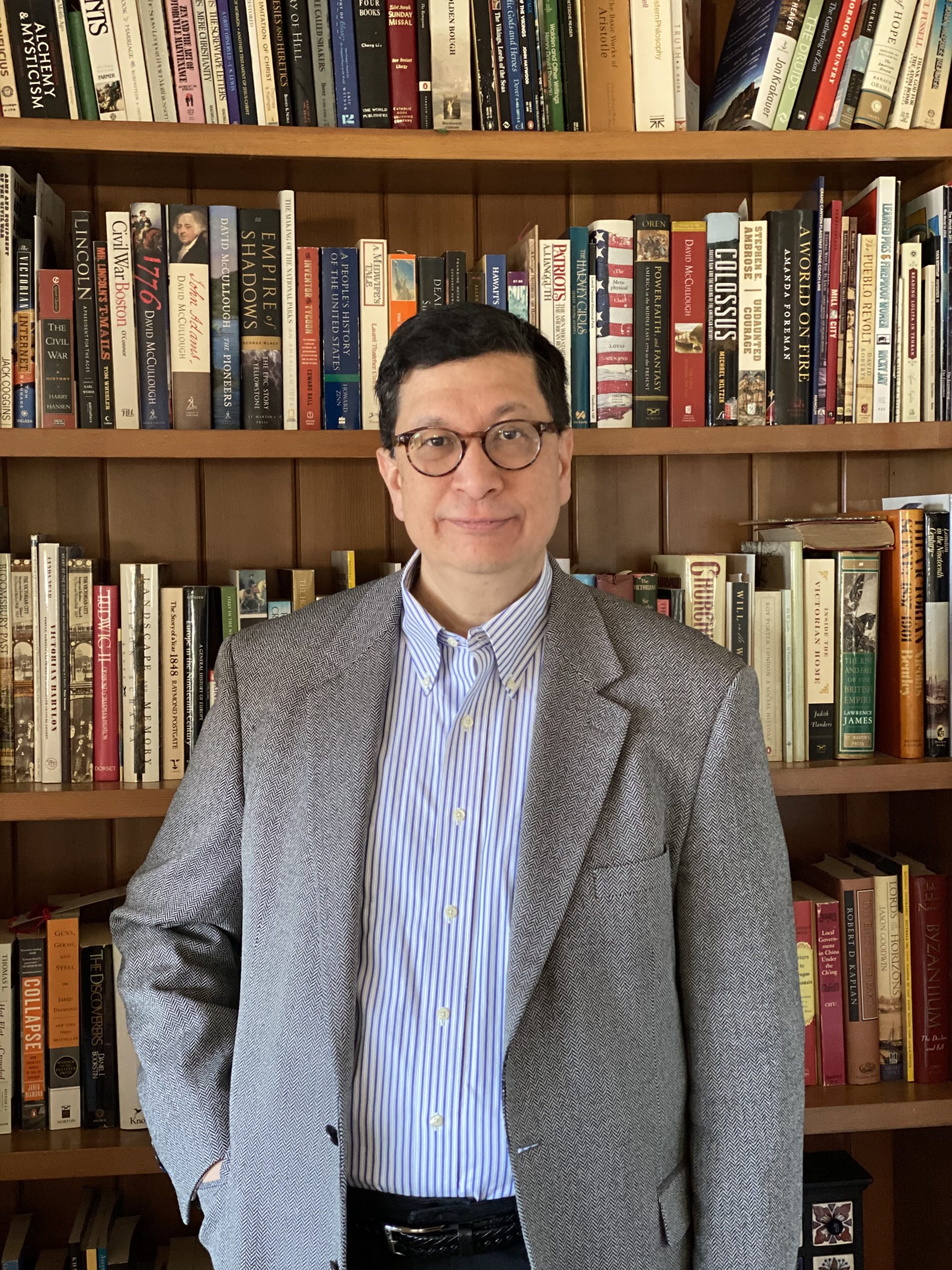
“Professor Contreras conducts research at the intersections of intellectual property law, science policy and technology development. In eleven books and more than one hundred scholarly articles and book chapters, he draws on historical, legal and economic sources to shed new light on the processes of innovation and access to technology. He has spoken and lectured around the world, and has been widely cited by scholars, courts and governmental agencies in multiple countries. Professor Contreras was one of the founders of the Open COVID Pledge, a legal framework that facilitated the contribution of an estimated half-million patents to the fight against COVID-19, and his forthcoming book ‘The Genome Defense: The Epic Legal Battle over Who Owns Your DNA’ (Algonquin) brings to life the unprecedented civil rights lawsuit that ended gene patenting in America.”
Professor | Department of Family and Preventive Medicine | School of Medicine Director of Research Facilitation and Integration | Utah Cancer Registry

“Dr. Mia Hashibe is a member of the Cancer Control and Population Sciences Program at HCI. Her areas of expertise are on global and molecular cancer epidemiology and cancer survivorship. She is the Scientific Coordinator and one of the founding members of the International Head and Neck Cancer Epidemiology (INHANCE) Consortium. Her studies include a head and neck cancer genetics study, multicenter head and neck cancer case-control study in China, a lung and head and neck cancer case-control study in Nepal, head and neck cancer risk prediction modeling, and a Cancer Survivors Cohort Study in Utah. The aim of the cancer survivor study is to comprehensively assess disease risks among cancer survivors in comparison to a general population cohort. Her current focus is to investigate whether rural breast, colorectal and prostate cancer survivors experience higher comorbidity burden than urban cancer survivors.”
Professor | Division of Ethnic Studies | School for Cultural and Social Transformation
Chair | Department of Education, Culture, & Society
“Professor William A. Smith’s research primarily focuses on Racial Battle Fatigue—a repetitive race-related stress injury—which is the cumulative emotional, psychological, physiological, and behavioral effects that racial micro-level aggressions and macro-level aggressions have on People of Color. Dr. Smith’s work promotes awareness of the physical and mental toll of racism while providing trauma-informed care for those who are targets of gendered racism.”
Professor | Department of Population Health Sciences | School of Medicine Professor | Huntsman Cancer Institute
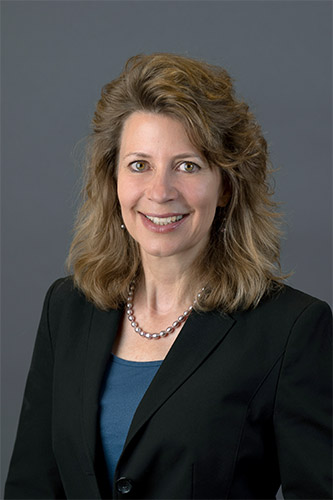
“Professor Neli Ulrich joined the University of Utah in 2014 as Division Chief of the newly established Department of Population Health Sciences and Senior Director for Population Sciences at Huntsman Cancer Institute (HCI). Since 2018 she has served as the Executive Director of the Comprehensive Cancer Center at HCI. Dr. Ulrich is a cancer epidemiologist with research projects spanning cancer etiology to survivorship, including both observational research and clinical trials of exercise. She investigates colorectal cancer in the context of biomarkers, nutrition, inflammation, obesity, and many other factors. Her collaborative teams are truly interdisciplinary and include members from diverse departments, including Pathology, Surgery, the Colleges of Health and Nursing, Pharmacology and others. Dr. Ulrich has authored more than 400 publications and led more than 22 grants and projects. She serves on numerous national and international boards and committees, including of the National Institutes of Health, American Association of Cancer Research, American Association of Cancer Institutes, and others. Dr. Ulrich has had a broad, lasting and meaningful impact at the University of Utah.”
Professor | Department of Biomedical Engineering | College of Engineering

“Professor Jeffrey Weiss’ research efforts have focused on the areas of experimental and computational biomechanics, primarily applied to the musculoskeletal and cardiovascular soft tissues. He developed and validated techniques for subject-specific computational modeling of joint mechanics and applied these techniques to the mechanics of knee ligaments and patient-specific modeling of mechanics in the hip. Professor Weiss also developed finite-element-based techniques to incorporate medical image data directly into biomechanics analyses for strain measurement.” “Professor Weiss’s lab develops, distributes and supports FEBio, an open-source finite element software suite for computational biomechanics and biophysics that is widely used for biomedical research.”
Distinguished Graduate Student and Postdoctoral Mentor Award
Professor | College of Nursing
“Dr. Lee Ellington expects pre- and post-doctoral mentees to commit to careers in science, develop innovative studies with a rigorous research design, and compete for extramural funding. Modeling practicalities such as project planning, grantsmanship, conduct of research, teaching, College and national service, and personal wellness, she fosters a culture of collaboration, timely and constructive feedback, encouragement, and reassurance; and empowers mentees to actively participate in the mentoring relationship. Mentees describe their professional relationship with Dr. Ellington as life-changing and continue collaboration for years after they progress to become independent scientists.”
Professor | Department of Educational Leadership & Policy | College of Education Associate Dean | Honors College

“Educational Leadership and Policy (ELP) programs consist of instruction, counsel, guidance and facilitation of the intellectual and career trajectories of our graduate students so that they can successfully navigate the academic pipeline. Dr. Parker’s mentoring enables the exchange of information to access social and institutional capital that often is an unspoken part of the cultural fabric of colleges and universities. He believes that a strong mentoring relationship is critical to engage effective and instrumental support; both of which are important to developing students to negotiate barriers, manage time and commitments, learn and understand the unwritten rules of the academy, as well as to pursue solid research agendas that will successfully launch them into their professional or post-doctoral careers. In addition, he has provided ELP students, as well as the undergraduate thesis students in the Honors College, with a lens for understanding their own life experiences and systems of inequality based on race, social class, gender and other dimensions of diversity.”
Professor and Chair | Division of Gender Studies | School for Cultural and Social Transformation

“Professor Wanda Pillow finds our students so ... becoming. In all the meanings of this term. There’s a beauty, I find her continually implying, to this encounter of coming-to-be.”
“When you feel that way, you’re willing to give endless time and thought to the process of doing right by our students. Is there a more sacred duty we uphold? I can’t think of anything that tops this devotion. And it’s moving to see a colleague be so adept at it. Wanda is an artist in the realm of mentor thoughtfulness. She’s full of thought on it.”
“Far more important than any dean’s letter are the detailed testimonies of her mentees. They become Wanda’s intellectual friends as they go on to activist scholarly pursuits that bear the stamp of all her values—values I know she would say she’s learned from them. Long before feminists generally came to wrestle with their own potential forms of racist, transphobic, moneyed ways of thinking, Wanda was steeping herself in the writings—and adding her own (!)—that made the word ‘intersectionality’ a new brain muscle. She is learned, passionate, compassionate, sharp, and gorgeously edgy on this front. And our students love her for it.”












